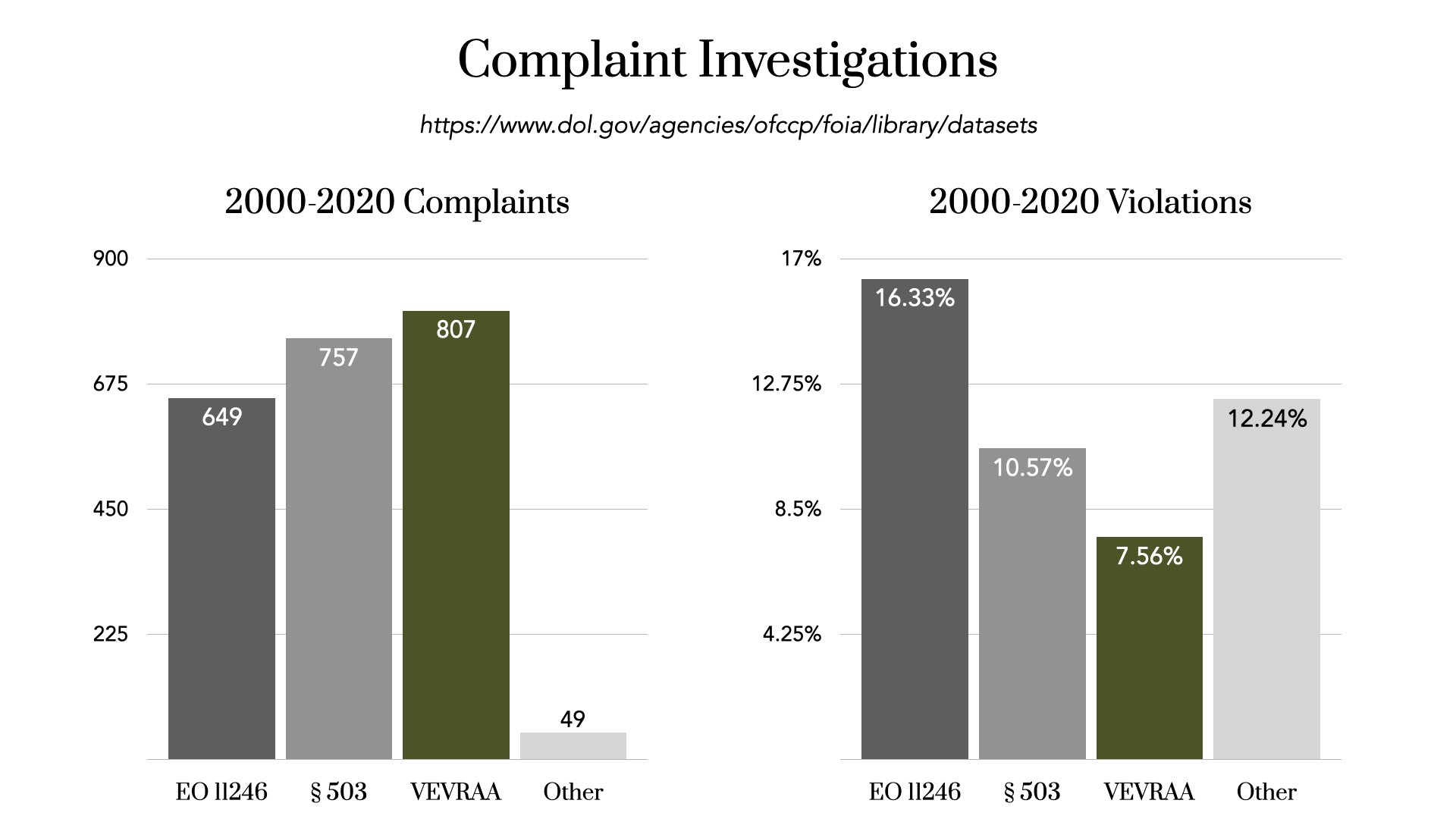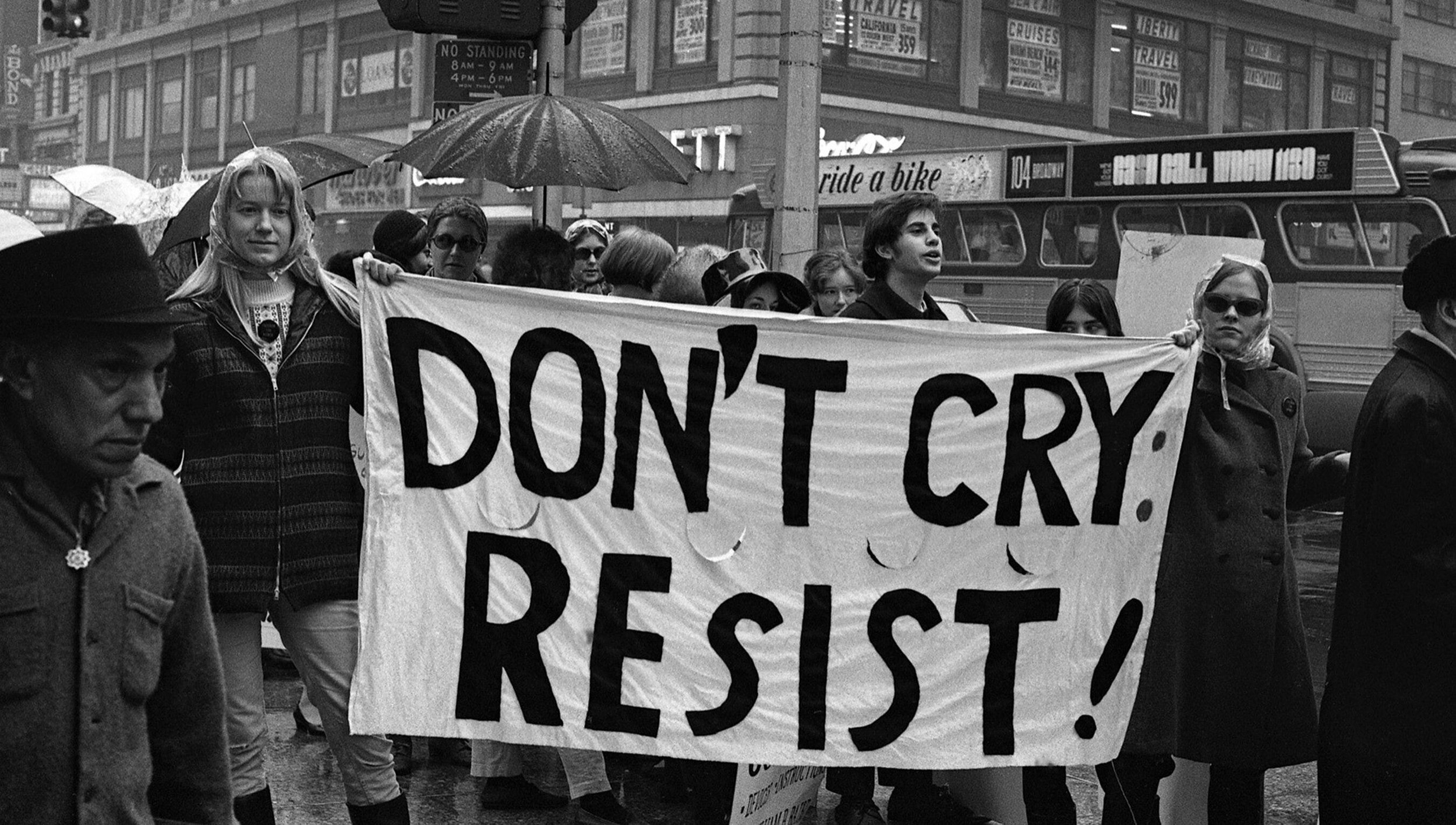Build a Better Future for Military Families
Watch the BBF4MF video series:
BBF4MF Intro | Part 1: Civilian Bias | Part 2: Political Power | Part 3: Human Dignity
I previously shared how I went viral after a veteran “wellness check” was initiated under highly suspicious circumstances. That whole debacle was set in motion after I asked Veterans of Foreign Wars (VFW) Post Commander Rick Jauregui to have a conversation about how the employment discrimination I experienced as a veteran led to my discovery that A LOT of veterans were being denied economic opportunity;
Veterans report the most employment discrimination but are denied their rights at greater rates than any other group.
I also shared that I had been trying to ask the same question, of veterans’ employment discrimination, to Congressman Mike Levin, chair of the House VA Subcommittee on Economic Opportunity. Two days after the weaponized well-check courtesy of the VFW Post Commander, Representative Levin followed the same playbook by siccing the DC Capitol Police on me;
I am leading with these two points in a Post on building a better future for military families because politics touches on so much more than we often realize.
The Personal is Political
By refusing to substantively address veteran employment discrimination and harassment, Jauregui and Levin presume that what I experienced was nothing but a personal problem. They might concede I was mistreated, but they each refused to see it as a political problem worthy of their time and political capital. They might be right if it weren’t for the data above, which makes clear that employment discrimination against veterans is the biggest problem facing the Labor Department’s enforcement agency, the Office of Federal Contracts Compliance Program (OFCCP).
Anne Koedt and Carol Hanisch in Times Square, New York, 1968. Photo by Bev Grant/Getty
When I brought up this stuff with another VFW member, they asked if veteran employment discrimination was really happening. The data above is crystal clear, but he wasn’t interested in cold hard facts; if he’d never heard of it happening, then it didn’t matter. This brings me to my first suggestion to folks who want to help me build a better future for military families.
First, believe soldiers and veterans.
I had literally just finished giving him the nutshell version of what happened to me at Duke when he said “Yeah, but is this kind of thing really happening?” There are 806 other veterans who also 1) experienced something degrading, 2) learned they were protected, 3) overcame the military’s Shut Up and Drive On mentality, and 4) filed a VEVRAA complaint. Just 7% of them were vindicated because OFCCP, as a civilian institution, does not believe veterans.
Part of the book cover for Believe Me: How Trusting Women Can Change the World, edited by Jessica Valenti and Jaclyn Friedman
Don’t get me wrong, I don’t think OFCCP or civilians generally distrust military families. But how else can one explain the 746 veterans’ employment complaints that were denied? Weaknesses in the law itself might be partially to blame, but that does not explain the massive number of complaints in the first place.
If you’re a civilian who feels called out, don’t fret. Mistrust can be mundane rather than malicious. The first time Laura accompanied me to the VA Medical Center was when we were still dating. All they accomplished over the course of four hours was take my vitals, audibly laugh about another vet’s medical history (violating HIPPA), flirt with each other, and compare work stories. Laura had already been working in healthcare for a few years, and she was beside herself with disgust. As we left, she asked me why I wasn’t as frustrated as she was. I shrugged; the experience was par for the course for me, to which she replied “I always thought you were exaggerating.” Mistrust can be innocent, based as it often is, on implicit bias. To correct civilian bias, you have to start believing military families. Then you need to speak up, and use your civilian privilege by adding your voice to theirs in demanding human dignity for soldiers and veterans.
Next, speak up for military families
The proportion of Americans with any direct connection to the uniformed service is less than one in ten. As a minority, military families can only do so much politically without the support of others. Our concerns can ultimately be dismissed as ‘personal’ until and unless they are also ‘popular.’
There are also several internal factors that complicate our political power in the military community. In service, we are trained to subordinate our own needs for the good of the whole. Talking about our own needs earns us labels like Malingerer or Profile Queen, so we ignore physical and spiritual pain to fit in. Furthermore, some of us have more access to political influence as a part of our rank, specialty, time in service, and character of service. Some of us don’t feel like we need political power and some of us don’t want to have anything to do with it or those who wield it.
But that’s the thing about civil rights, they’re for those who need them, whether or not they intend to exercise them. Every soldier, veteran, and military dependent benefits from equal economic opportunity, hate crimes protections, and fair housing. Even if you, or they, don’t agree, that doesn’t make them right, because justice is always right.
May I Suggest…
The good news is that there is SO much you can do to advance civil rights for soldiers and veterans. Here are a few I suggest;
1. Book a #GIJustice Workshop with yours truly! ☧ost subscribers get 15% off all Military (Civil) Rights and (Military) Social Justice trainings.
2. Buy a #GIJustice Premium Pack of all my white papers, explainers, and short sheets I’ve created to advocate for human dignity for military families.
3. Contact your Congressional Delegation (find out who they are HERE) and tell them that denying military civil rights is a stain on our national honor. Then send them my proposed Military Civil Rights Act and tell them to introduce it in the 118th Congress.
Frederick Douglass was fond of reminding people that power cedes nothing without a demand, but nobody gains freedom on their own. For so much as asking questions about my own civil rights, I was reported to law enforcement as a threat. The truth is, I AM a threat, just not to people or property. When you rattle your chains to demand freedom, you become a threat to injustice; you enter the spiritual battlefield to which Ephesians 6:12 calls us, “against the authorities, against the cosmic powers of this present darkness, against the spiritual forces of evil in the heavenly places.”
When you rattle your chains demanding freedom, you become a threat to injustice
Many in the early Church referred to themselves as milites Christi, soldiers of Christ, and saw spiritual warfare as the calling of all who followed Jesus. The Israelites were called ṣāḇā Yᵊhōvâ, the army of God, whose movements in the wilderness resembled units on the march. Not all soldiers are Christian, but all Christians are soldiers, engaging against the evil forces of isolation and alienation in a world filled to the brim with them. I will fight, even if I have to do it alone, but I hope you will consider being a battle buddy by joining me in one of the ways I’ve laid out above.




